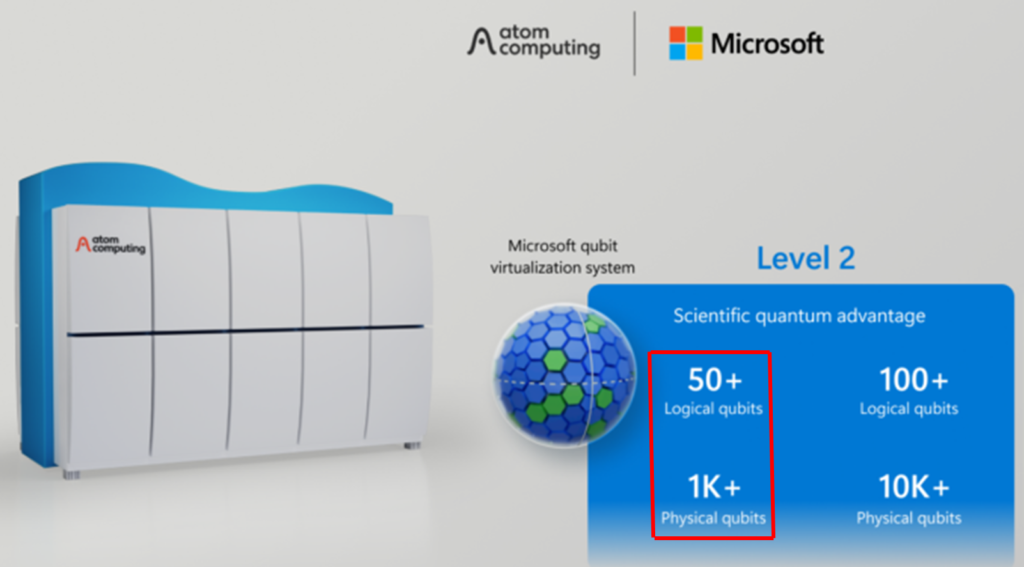At this week’s Microsoft Ignite 2024 conference, the company has provide more information about the 1000+ physical / 50 logical qubit neutral atom based quantum computer that Microsoft had mentioned last September at the Quantum World Congress. The companies are finalizing the design and are starting to take orders now for delivery in late 2025. The computer will be available for on-premise installation. The computer is intended to be used in a hybrid environment that includes HPC and AI resources, so all offerings will include cloud service and Microsoft’s qubit-virtualization system and other offerings such as Azure Elements. For on-premise users, an important characteristic of this computer is that it is designed to be field upgradable. So when new hardware with better capabilities becomes available, an upgrade can be accomplished on-site.
This development has been enabled by two technical accomplishments made by the two companies. The first is an improvement by Atom Computing in their two qubit gate fidelity to a 99.6% level. The second is demonstration of an effective error correcting code using Microsoft’s qubit virtualization system that corrects by qubit errors as well as qubit loss. Using this code, the companies were able to create a logical entangled GHZ state of 24 qubits, the largest number achieved to date. This is double the 12 entangled qubits the company demonstrated in September of this year on Quantinuum hardware and the 4 entangled qubits they achieved in April, also on Quantinuum hardware. In another test using the Bernstein-Vazirani algorithm with 28 qubits, the company showed that using logical qubits versus physical qubits provided a significant improvement in the success rate.
Although the quantum computer the companies announced is probably not large enough to achieve a commercial quantum advantage, the companies think it might be large enough to demonstrate scientific quantum advantage for scientific research and discovery, particularly when used with Microsoft’s AI and cloud high-performance computing (HPC) technology including Azure Elements.
Additional information about these announcements is available in a blog post by Microsoft available here and another blog post from Atom Computing that can be viewed here. In addition, an arXiv paper from Atom Computing on their achievement of high fidelity gates in their neutral atom computer can be accessed here and another arXiv paper that covers the team’s achievement in creating and computing with logical qubits can be accessed here.
November 19, 2024
